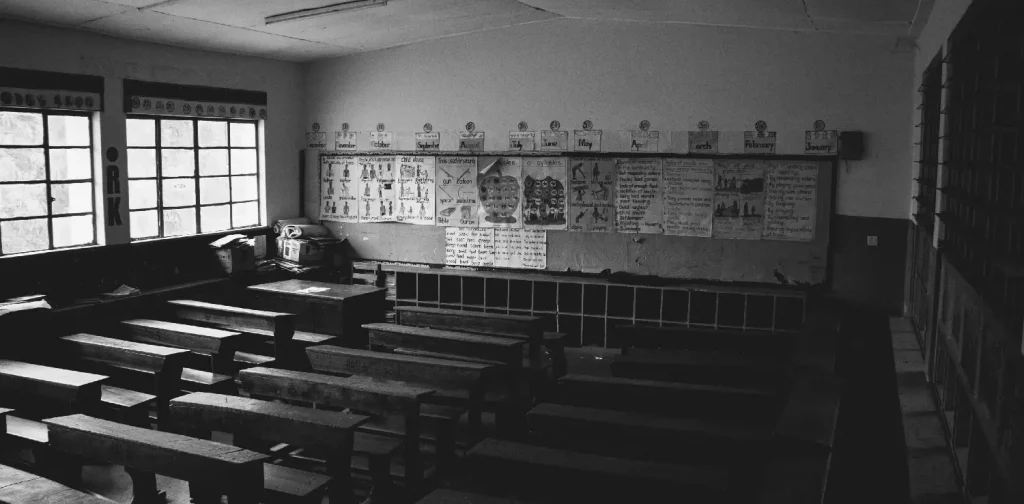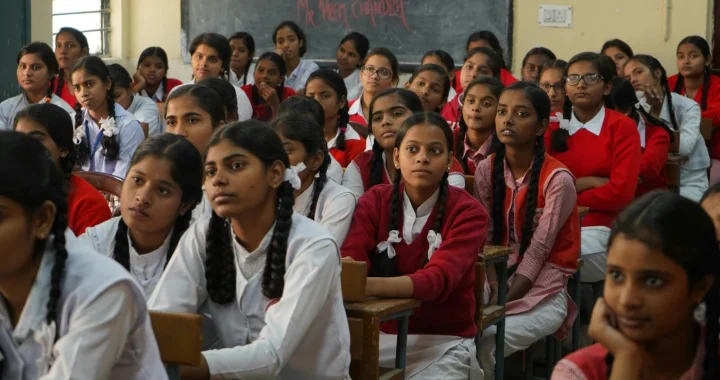Lebanon’s Education Crisis Is Not Getting Better

Photo by Mwesigwa Joel on Unsplash.
Education is a basic human right – as stated in the Universal Declaration of Human Rights – and probably the most sustainable investment possible. It’s one of the most powerful tools to escape poverty.
Often a given for the privileged, education remains out of reach for those who need it the most. In Lebanon, students and teachers are struggling amidst an education crisis.
The Collapse
The teachers’ strikes started on January 10, 2022. Public schools in Lebanon had to close as teachers protested to demand adjusted, higher wages. Due to the country’s ongoing economic crisis, the prices of most goods and services skyrocketed or even in US dollars.
Throughout the year, teachers sporadically went on strikes. However, solutions from Lebanon’s Ministry of Education and Higher Education (MEHE) would end up falling through or become meaningless in the face of the ever-increasing prices.
On January 9, 2023, the teachers’ strike began again. As reported by Arab News, hundreds of teachers sat out of classes, and some took to the streets to protest.
Ali Al-Dehni, a high school teacher, said, “We’ve been suffering for three years because of false promises and scarce incentives.” He added, “Teaching has been an uphill battle, and we are paying from our own money for fuel so we can drive to schools and carry out our educational duty.”
The Affected
Public schools in Lebanon are now closed. Morning classes for Lebanese students must close due to the protests and strikes, and the MEHE has also decided to suspend the afternoon classes for Syrian refugee students.
Director General of Education Imad Achkar said the decision was “taken in accordance with the principle of equality”. Achkar said, “We receive everyone, and our hearts are open to everybody, but it’s unacceptable for non-Lebanese children to receive an education while our Lebanese children are deprived of it.”
With this, the total number of children currently out of school in Lebanon is over one million, according to Save the Children. An eleven-year-old student from northern Lebanon was heartbroken about school closures. She said, “School was my escape; now I don’t have anywhere else to go. I’m scared of the future.”
An older student, Mustafa Hussein (18), understands the situation. He even attended a sit-in to support his teachers. He mused, “We’re seeing our future slip away, but we can’t blame the teachers. They’re trying as hard as they can to teach us every day.”
The Urgency
“Teachers in Lebanon are struggling to make ends meet,” said Firas, a chemistry teacher. “The Government must take immediate action to address the education crisis and support the educators who are working tirelessly to educate our children.”
Jennifer Moorehead, Save the Children’s Country Director in Lebanon, urges the Government to take immediate action as education is crucial for the recovery and future of the country. “The priority has to be getting children safely back to school and to ensure a sustainable solution to teacher wellbeing,” she said.

Co-create positive impact for people and the planet.
Amidst today’s increasingly complex global challenges, equipping yourself, team, and communities with interdisciplinary and cross-sectoral insights on sustainability-related issues and sustainable development is no longer optional — it is a strategic necessity to stay ahead and stay relevant.

Nazalea Kusuma
Naz is the Manager of International Digital Publications at Green Network Asia. She is an experienced and passionate writer, editor, proofreader, translator, and creative designer with over a decade of portfolio. Her history of living in multiple areas across Southeast Asia and studying Urban and Regional Planning exposed her to diverse peoples and cultures, enriching her perspectives and sharpening her intersectionality mindset in her storytelling and advocacy on sustainability-related issues and sustainable development.


 India’s Supreme Court Declared Menstrual Health and Hygiene as Fundamental Rights
India’s Supreme Court Declared Menstrual Health and Hygiene as Fundamental Rights  Impacts of E-waste Pollution on Animals and Human Health
Impacts of E-waste Pollution on Animals and Human Health  Africa’s Solar Energy Surge: Why 2025 Was a Breakthrough Year
Africa’s Solar Energy Surge: Why 2025 Was a Breakthrough Year  Agrihoods: Integrating Farms and Urban Neighborhoods into Sustainable Communities
Agrihoods: Integrating Farms and Urban Neighborhoods into Sustainable Communities  Women in Waste Management: Asia’s Circularity Runs on Women. Its Policies Still Don’t
Women in Waste Management: Asia’s Circularity Runs on Women. Its Policies Still Don’t  Embracing the Business Value of Sustainability
Embracing the Business Value of Sustainability